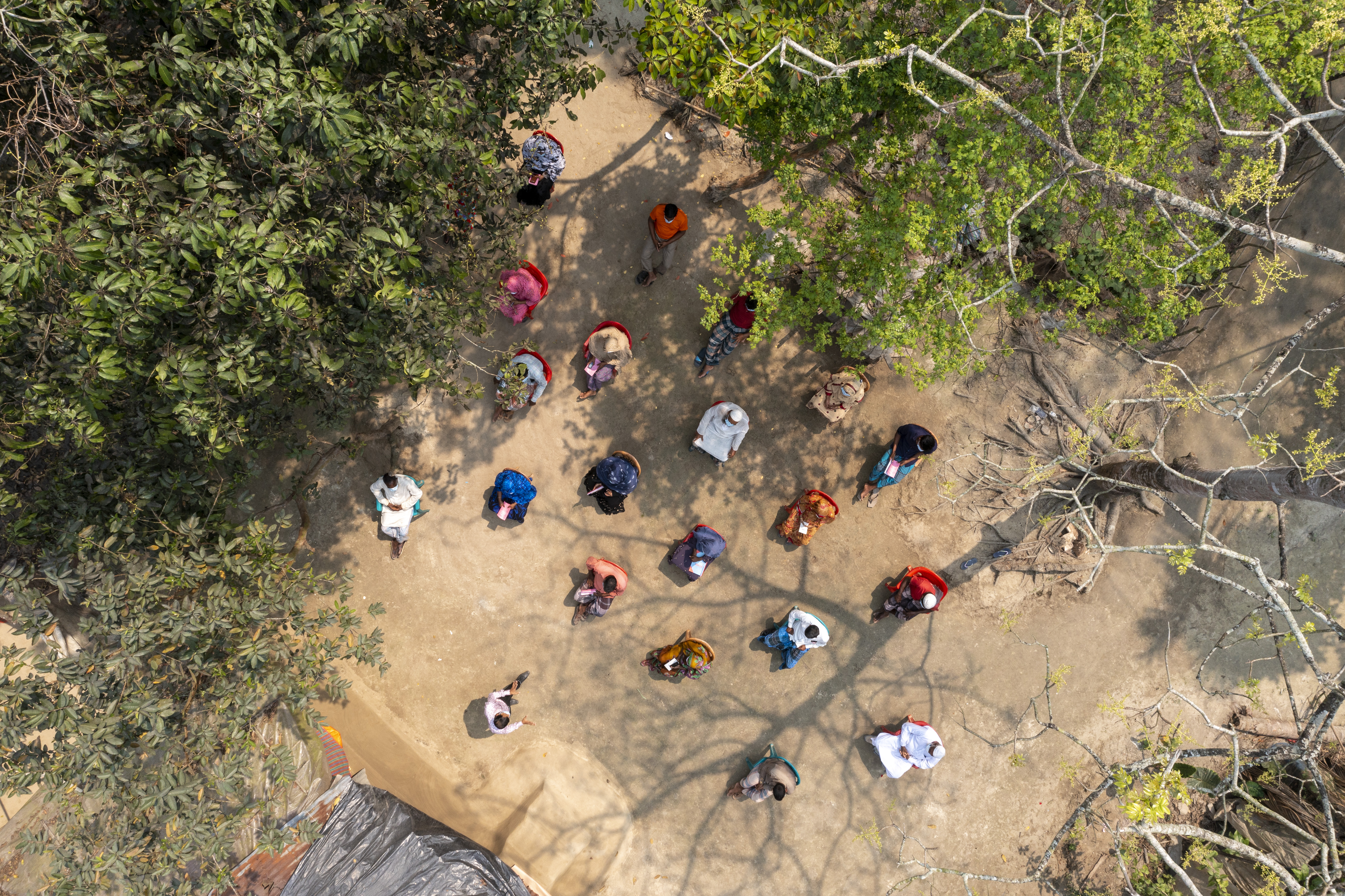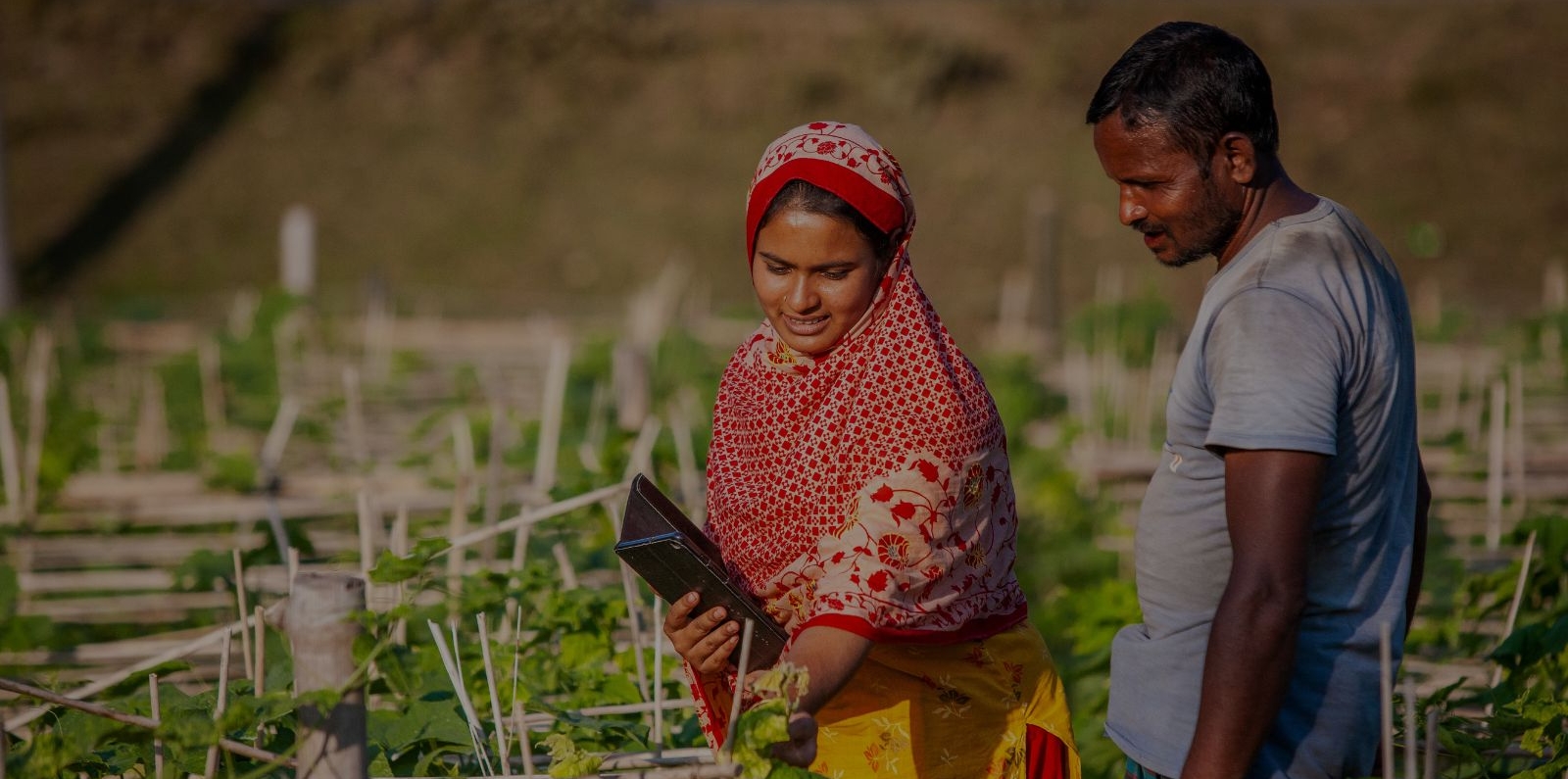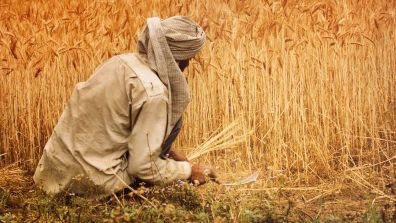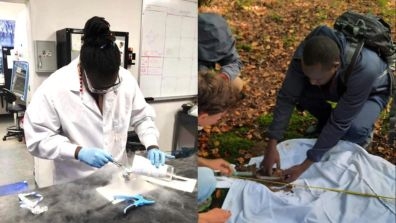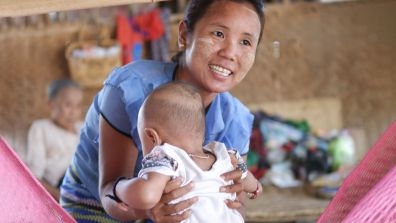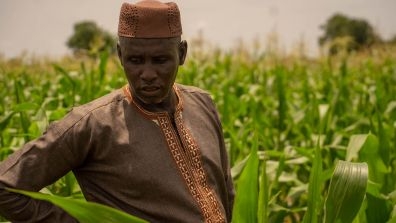When the GAFSP-supported national farmers’ organizations network Sara Bangla Krishak Society (SBKS) received the prestigious 2023 FAO Achievement Award, the news was received with gratitude and hope by members.
Rita Bramma, President of SBKS, said: "This award gives a much-needed sense of unity and solidarity during a time of another potential food crisis due to the global economic recession.”
Despite climate and economic challenges, the network has mobilized a robust response on the ground, including maintaining 55 virtual call centers, 22 of which are run by women, and 55 digital villages in the north and south of Bangladesh.
Just as it bounced back during the health crisis of COVID-19, the SBKS is driving change: linking farmers to export markets, helping them cope with higher agri-input prices and introducing climate-resilient practices like saline agriculture.
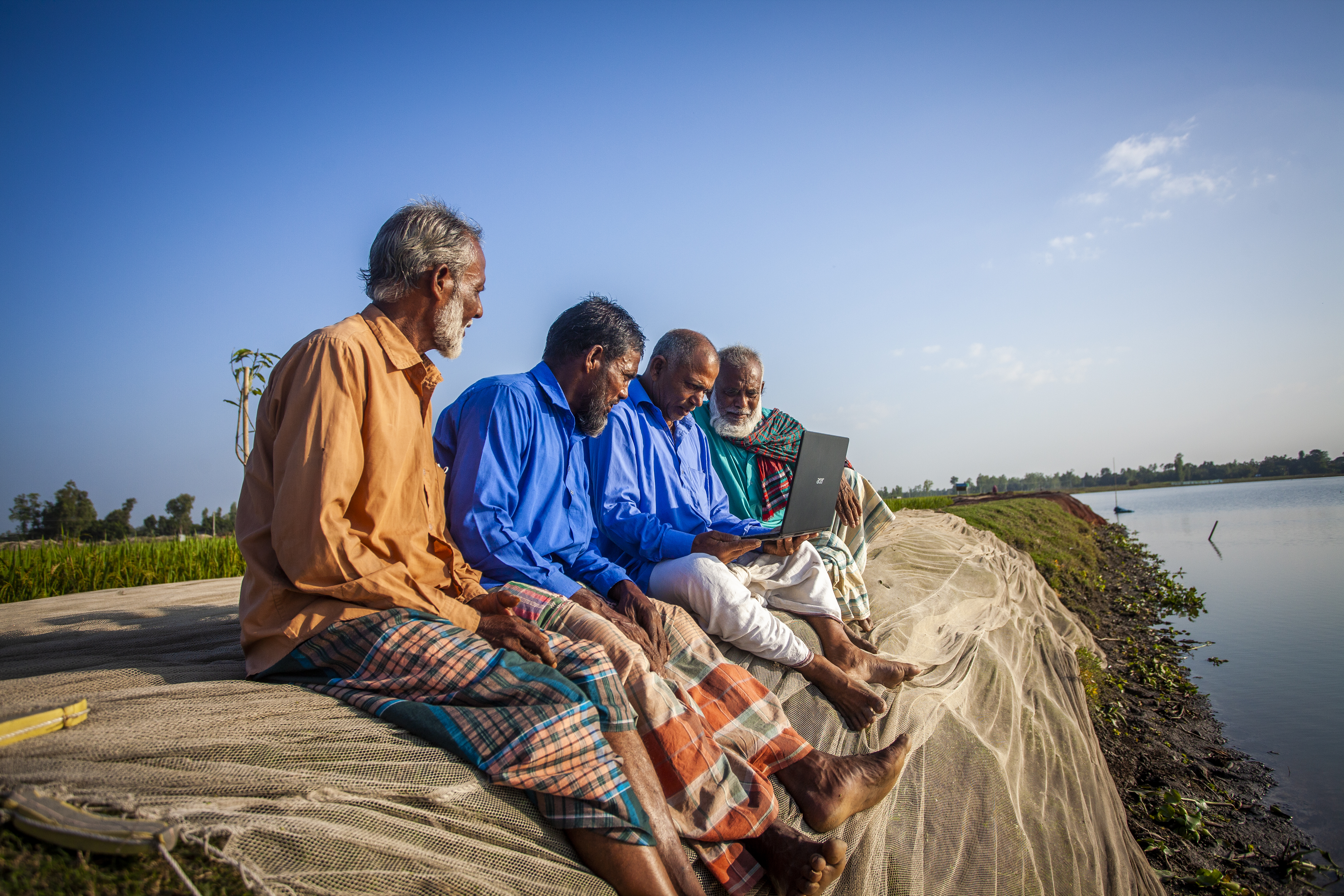
We caught up with three members of the society, to ask how they are coping and to gain their insights on progress: Morsheda Begum, SBKS executive member, digital literacy coordinator, single mother of three and livestock farmer; Beauty Khatun, treasurer overseeing the financial administration of the organization and savings fund, mother of two and dairy farmer; and General Secretary Obydul Hoque – he is in charge of daily activities, orchard farmer and ‘circular agriculture’ pioneer.
Q: Can you give an example of the innovations you employ in your exemplary work to address challenges faced by smallholder farmers?
Our digital village service centers provide the community with agri-business information, using mobile banking apps and digital services. We provide training for young men and women on basic digital technology. We have a GAFSP-supported revolving fund, and we also link individuals with banks through digital apps, so that they can access credit and banking services.
We provide support to members to create business plans, supporting members to develop bankable business proposals using a toolkit called Rural Invest. This is a free multilingual toolkit developed by FAO, and designed to help with the preparation of sustainable agricultural and rural investment business plans. We also support individual members to sell their produce, or to buy and access agricultural inputs supplied in bulk by the private sector.
The SBKS network, supported by FAO and GAFSP, has also been working with the Department of Agricultural Extension, Bangladesh Agricultural Development Corporation and Bangladesh Agricultural Research Institute among other partners, to increase access to export markets. For example, potatoes are an important cash crop, with the potential to earn a good income. But farmers face a number of challenges, including lack of knowledge about markets, exportable or commercial varieties and good agricultural practices.
Training in good agricultural practices has helped farmers to tap lucrative potato export markets and reduce the use of fertilizer or cattle feed ingredients which have escalated in price. Improvements in the milk processing value chain, have supported farmers in buying machinery to make their own livestock feed, thereby reducing production costs.
Q: You are currently implementing the Accelerating Economic and Social Inclusion of Smallholder Farmers in Climatic Hotspots through Strong Producers’ Organizations (ACCESS) project with GAFSP. Can you give an example of how smallholder farmers in climate hotspots have been supported to strengthen their resilience to public health and climate-induced crises?
Solutions vary depending on location, and whether the challenge is drought or saline-intrusion related. For example, the southern part of the country is highly exposed to saltwater intrusion brought about by cyclones and storm surges. Recently, the SBKS partnered with the Netherlands Water Partnership to support farmers in implementing saline agriculture. The partnership provides training curriculums to cover advisories on soil and water tests, irrigation methods for farming and appropriate fertilizer use, depending on the season.
Farmers have also been trained in how to treat increased salinity in the soil, to improve their harvests. For example, mulching can reduce salinity and also retain moisture in the soil to save water. Saline-tolerant seed varieties for watermelon, mung bean and groundnuts can be accessed through the government and private sector. Meanwhile, some seed villages are now operational to provide foundation seed of saline-tolerant varieties.
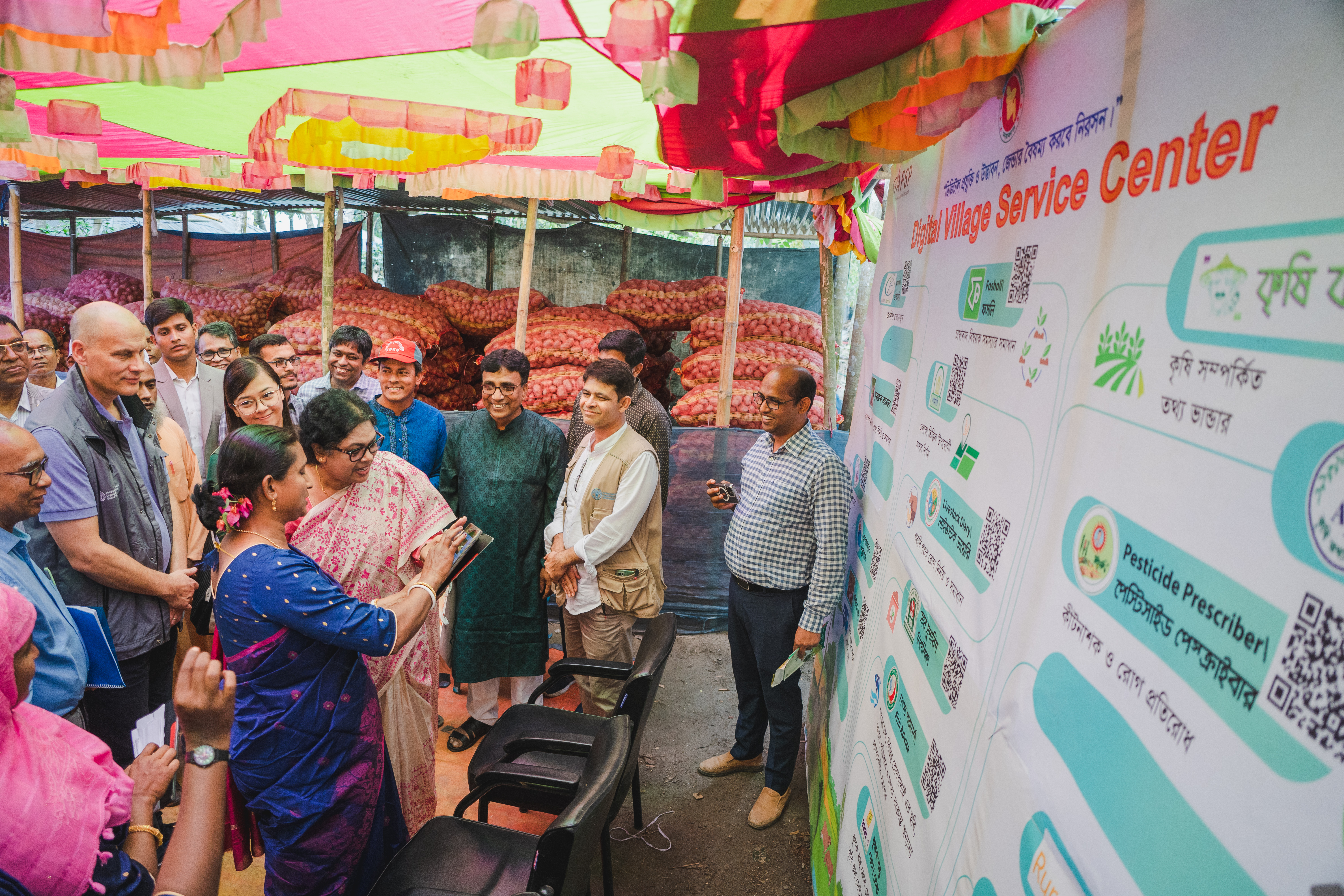
Q: Can you give an example of public health and climate interventions tackled through the GAFSP ACCESS project?
Public health-related and nutrition-sensitive modules have been included in training modules carried out by village service centers, developed in accordance with national guidelines. The training supports farmers in establishing nutrition gardens, containing thirteen essential and nutritious ingredients for family members of different ages.
To mitigate nutrition deficiency, SBKS members are working to establish vegetable gardens within each homestead, to supply year-round, nutrition-rich vegetables for family nutrition. Livestock is also an integral part of farming in Bangladesh, and farmers are receiving training and advisories to improve animal, human, environment and economic health.
Q: How can development partners involved in GAFSP best support SBKS’ plans and members in the future?
Thanks to GAFSP, we have introduced new digital financial tools to communities in a way that no other organizations have done. Together with FAO, we prepared an inventory of more than 100 commodity clusters across the country, expanding the project model from 20 clusters. We plan to extend this work beyond areas already supported by the project in future, and appreciate the support from GAFSP, from project management through to development.
